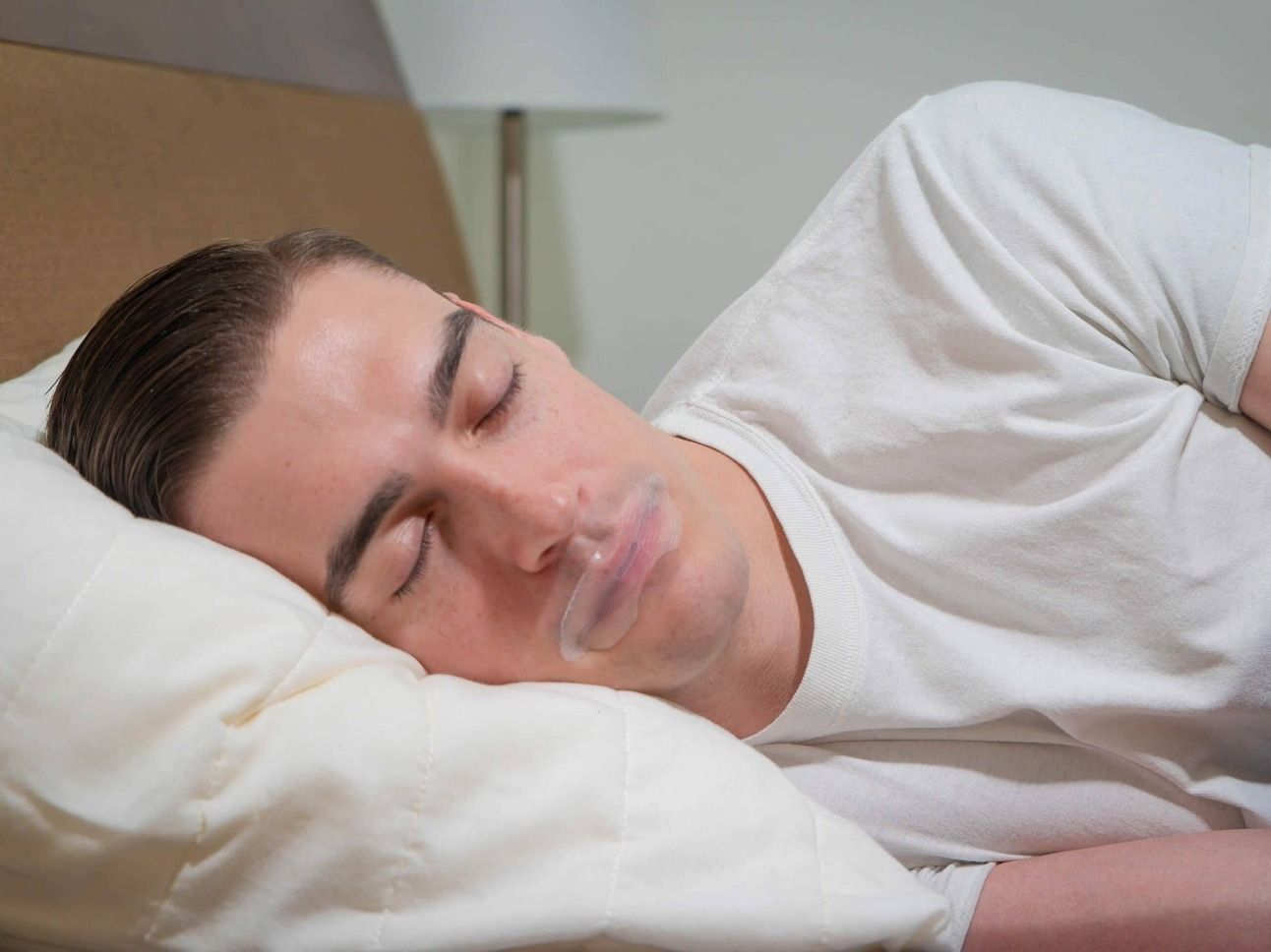- Mind Mastery Minutes
- Posts
- How Are You Breathing Right Now?
How Are You Breathing Right Now?
Mind Mastery Minutes - V1.14

Breathing.
The first thing we do when we are born and the last thing we do before we die.
It’s mostly unconscious, so we rarely think about it.
But I want to know something…
How are you breathing right now?
Through your mouth or nose?
Be honest.
Just 39% of people breathe through their nose.
Meaning…
Around 61% of you may fall into the “mouth breather” category…
Chronic mouth breathing not only affects your face and jaw structure.
Unfortunately,
It’s worse than that…
The way you breathe could be affecting how you feel every single day.
If you’re in the 61%,
Don’t worry.
Spend the next 3 minutes of your time reading this.
And you’ll know how and why to avoid breathing INCORRECTLY…
1. Sleeping

Yep.
I tape my mouth shut when I sleep.
(feel free to laugh)
Here’s why you should to:
Mouth breathing while sleeping is almost unavoidable.
It leads to:
Poor quality sleep
More susceptible to illnesses (the nose filters allergens from the air)
Dry mouth/throat
Structural changes to face (unproven, but definitely worth avoiding)
It’s important to mention here…
There’s no science suggesting this is true, I’m only sharing my experience.
Obviously the placebo effect may be at play.
But since doing this,
I have definitely noticed the benefits.
If you are interested, here’s what I’ve been using.
Avoid the pricey brands.
This is £2 and is all you need:
2. Anxiety / Stress

Believe it or not,
The way you breathe could be making you anxious…
Your breathing has a huge impact on your brain and body.
The technique and pattern of your breathing communicate to your body what kind of situation you are in.
You can control the degree of stress/relaxation you feel just by changing the way you breathe.
Let’s prove it:
1. Take 5 deep breaths through you nose, inhaling into your stomach.
2. Take 5 short, shallow breaths in and out your mouth.
Did you notice anything?
You should have felt a very different feeling in your body after the two exercises.
Feelings of calm and relaxation, (a release of tension).
Feeling on edge or frantic, (a build up tension).
What does this tell us?
That anxiety and stress are not set in stone!
In some situations these responses are unavoidable.
But often times they are preventable just by consciously changing your breathing.
So, next time you find yourself feeling anxious.
Pay attention to your breath!
The power to change how you feel is all in your control.
3. Running/ Exercise

The way you breathe during exercise can dictate the intensity of the session as well as how enjoyable you find it.
A good protocol for running is:
Ensure you are breathing in and out your nose at all times.
If you are unable to keep this up, that’s an indication to slow down.
Mouth breathing puts your body in a panicked state by activating the sympathetic nervous system (fight or flight). | Nose breathing keeps your body relaxed by activating the parasympathetic nervous system (rest and digestion). |
Makes you feel stressed and exhausted. | Makes you feel calm and in control. |
Unless you’re competing…
Running should be fun and relaxing.
Nose breathing will keep you at a steady pace where you feel like you can run forever.
Try it out.

BONUS:
Breathing techniques to reduce stress:
10 deep nasal breaths
Box breathing
2 inhales 1 exhale
Wim Hof
“Sometimes the most important thing in a whole day is the rest we take between two deep breaths.”
“When you own your breath, nobody can steal your peace.”
“Inhale the present moment, exhale the past.”
Cheers for reading!
I hope to bring these out weekly once again.
Hopefully this added some value.